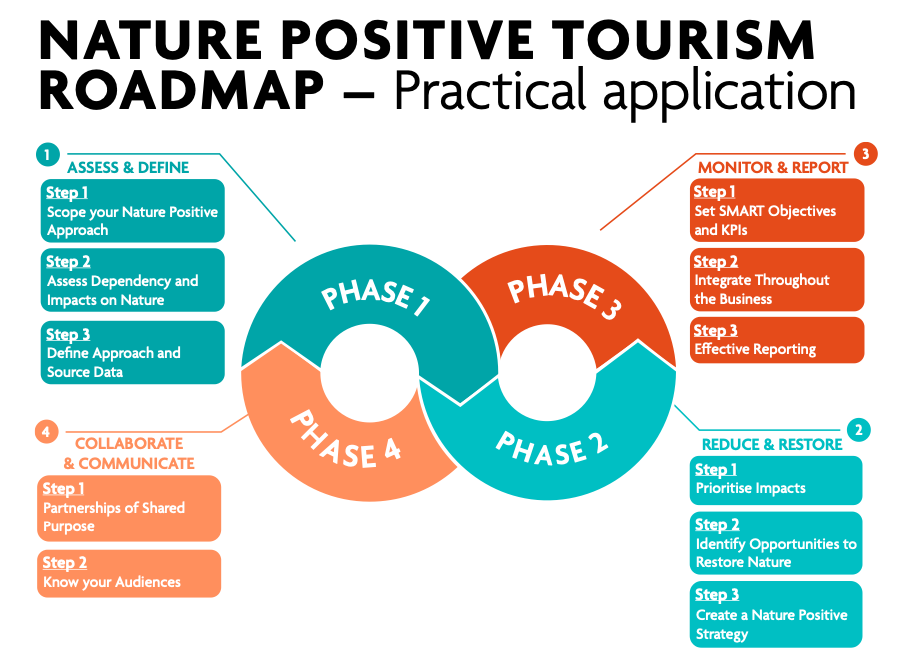The World Travel & Tourism Council has published a report that shows how the travel and tourism industry can play a critical role in halting and reversing the destruction of nature.
The ‘Nature Positive Travel & Tourism’ report was jointly created with ANIMONDIAL, a key adviser to global travel and tourism on animal and nature protection, in collaboration with global businesses within the sector, and has also been endorsed by Secretariat of the Convention on Biological Diversity.
Travel and tourism businesses are uniquely positioned to take positive actions to restore nature and, through nature-based solutions and decarbonisation, achieve nett zero.
WTTC President and CEO, Julia Simpson, said: “Travel and tourism is uniquely placed to make a real difference; 80% of travel and tourism is highly dependent on nature so it is crucial we take a proactive role in advancing nature conservation.”
Nature tourism represents 20% of global tourism and the report indicates just how crucial it is for destinations around the world. Wildlife is a primary motivator for nature tourism, contributing US$343 billion to the global economy every year and supporting nearly 22 million jobs around the world.
Although the global travel and tourism industry evidently values nature and remains committed to protecting people and the planet, more guidance is needed on the importance of biodiversity, the key drivers of biodiversity loss and the key components to better protect and restore it.
“Most travel and tourism businesses we talk to already understand the need to include the protection of biodiversity and nature in their planning and reporting. But this can be a complicated area and, for many, the first challenge is simply knowing where to start,” said ANIMONDIAL Co-Founder and Director, Daniel Turner.
To tackle this, the report offers a roadmap based on a four-phase framework with practical steps to guide the sector in adopting a Nature Positive approach. The steps assess operational impact, setting out a strategy and identifying essential actions, rolling out and reviewing the programme, and harnessing communication opportunities.

The report also offers four actions businesses can achieve in the short term – reconnecting people and nature, supporting sustainable value chains, protecting animals and their welfare, and investing in nature.























